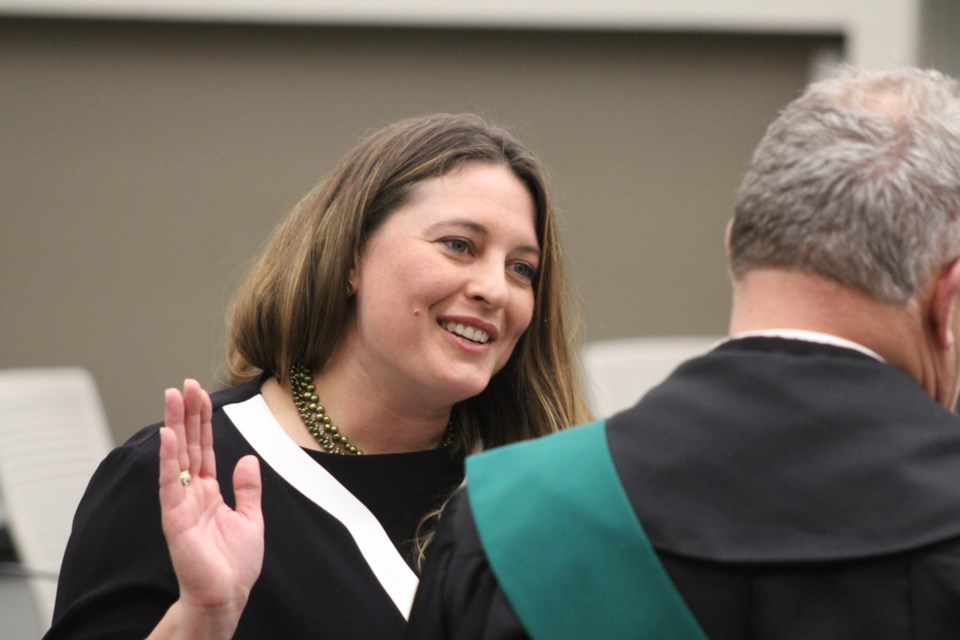There’s no time like the present to get more women interested in politics, and running for office, say two Barrie councillors.
Ann-Marie Kungl and Natalie Harris say the 2022 city election isn’t far away.
“While we are two years out from our next municipal election, it is not too soon to start the conversation,” Kungl said. “It is well-reported by women that they’ve often needed to be asked multiple times or need to be convinced to run for office.”
In Barrie’s 2018 city election, for mayor and council, 30 men and 11 women ran for office. And in the February 2020 Ward 3 byelection, five of the candidates were men, three were women. Even with Kungl winning the Ward 3 byelection, nine of Barrie’s councillors are men and two are women.
“In 2020, we are no further ahead in Barrie to reducing a gender parity gap on council,” Kungl said.
In Ontario’s 2018 municipal elections, the Association of Municipalities of Ontario says 27.2 per cent of the candidates were women and, of those candidates, 29.4 per cent of them were elected or acclaimed.
“I think having more women run for office can translate into having more women elected to office and, at minimum, it can shift the conversations during campaigns and influence elected representatives,” Kungl said. “More women running for council, on council and on city committees and advisory councils, will add diverse perspectives to decision-making that could improve policies and bring new ideas to the table.”
Harris says she decided to run for Barrie city council in 2017 after learning so much about the role while attending a local women in politics meeting facilitated by CFB Borden Honorary Col. Jennifer Armstrong.
“Groups such as this are beneficial to anyone interested in a political career, as they provide a forum to discuss concerns about things such as the large time commitment required to run for election and to perform the role while already facing time constraints which naturally go along with raising a family,” Harris said.
“I think it’s important to highlight that there have been women with very large families on city council,” she added. “So like any career, if you want to pursue one in politics, I say go for it! It may not be easy, but it’s definitely possible.
“Yes, having more women run for election provides residents with more female options, but I am always certain to point out that my male city council counterparts are equally as qualified to hold this role. I think that most people vote on all aspects and qualifications of an individual, not just on their gender," Harris said.
Mayor Jeff Lehman says the Federation of Canadian Municipalities (FCM) encourages women to run for office and tries to remove barriers.
“It's still, unfortunately, the level of government that has the lowest level of (female) elected officials,” he said of municipalities.
Through its women in local government initiatives, FCM says it helps support women from all backgrounds increase their knowledge and become leaders in their communities through education, training and workshops.
“I will be leveraging several resources and reaching out to local champions to collaborate on developing a strategy that supports informing, empowering and engaging women in considering and planning to run in the 2022 municipal election,” Kungl said. “We know there are many factors that may deter women from participating in electoral politics and we can start working on addressing them.
“Access to role models, mentorship and networking opportunities at formal and grassroots levels are reported as being an important part of a women’s decision to run for office and can increase their confidence and willingness to take this step," she added.
Harris says there are many local examples of women who are successful leaders, such as Barrie Police Chief Kimberley Greenwood, Royal Victoria Regional Health Centre president and CEO Janice Skot, and Georgian College president and CEO MaryLynn West-Moynes. Many managers with the City of Barrie are also women, Harris said.



